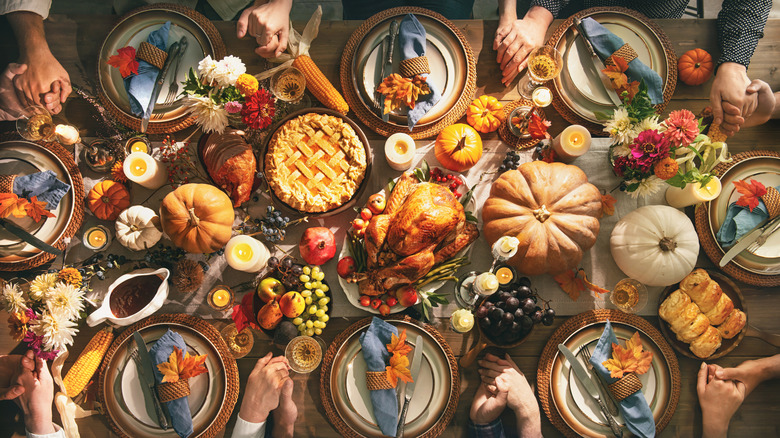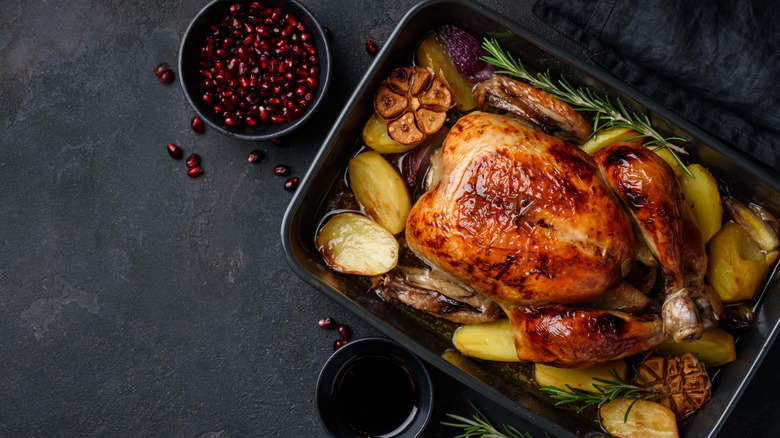This Is Where The First Thanksgiving Might Have Taken Place
For centuries, Americans have been taught that the holiday they celebrate on the fourth Thursday of November — Thanksgiving Day — is a sort of continuation of an event that happened 400 years ago. Specifically, as History notes, in the fall of 1621 a group of settlers that had arrived at Plymouth, in the Massachusetts Colony, and had survived the first winter, shared in a meal with the Wampanoag tribe, while the Christian Pilgrims gave thanks to God for their survival and their friendship with the natives. And while the event did happen, much of what we think we know about it isn't true. For example, as Smithsonian Magazine notes, modern-day Americans celebrate the day with turkey, while the original participants probably didn't. Further, the narrative about friendship between the settlers and the natives ignores some uncomfortable truths about the plight of the Wampanoag and other tribes.
As it turns out, however, the Massachusetts Pilgrims and their neighbors might not have been the first to celebrate Thanksgiving in what is now the United States. Half a century earlier and a thousand miles away, a Spaniard and his crew also celebrated a meal of thanks with a local native tribe, and the event is almost completely lost to history.
Was the first Thanksgiving actually in Florida?
50 years before the first Pilgrims set foot at Plymouth, a Spanish sailor named Pedro Menéndez de Avilés, along with his crew, arrived in what is now Florida on September 8, 1565. As History notes, following the undoubtedly perilous crossing of the Atlantic Ocean, the joyful and safe Spaniards celebrated by holding a traditional Catholic mass of gratitude there on the shores of what would later become St. Augustine. That's the first part of the story — the celebration of giving thanks and the invocation of God — but what about the second part, the participation of local tribes? As it turns out, the local Timucua tribe joined in as well, according to The Jacksonville Historical Society. As was the case with Massachusetts, there was almost certainly no turkey on the menu, and indeed, what they ate was probably ship's rations combined with some vegetables provided by the Timucua.
As it turns out, Avilés may have been beaten to the Thanksgiving holiday as well. A year earlier, a French explorer named Rene Goulaine de Laudonnière landed in Florida and, in gratitude, gave thanks to God and had a meal to celebrate. Again, they were joined by the Timucua, who likely supplemented what was left, if any, of the French ships' rations with local food, likely alligator and fresh fruits, among other provisions.

